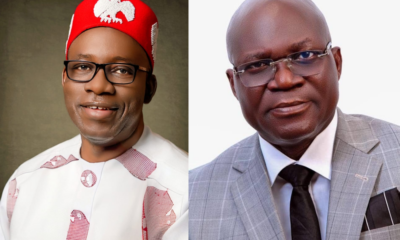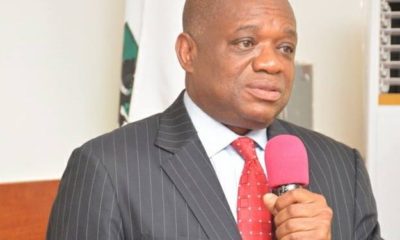News
Maternal Mortality: MRHR Collective To The Rescue, Unveils New Logo
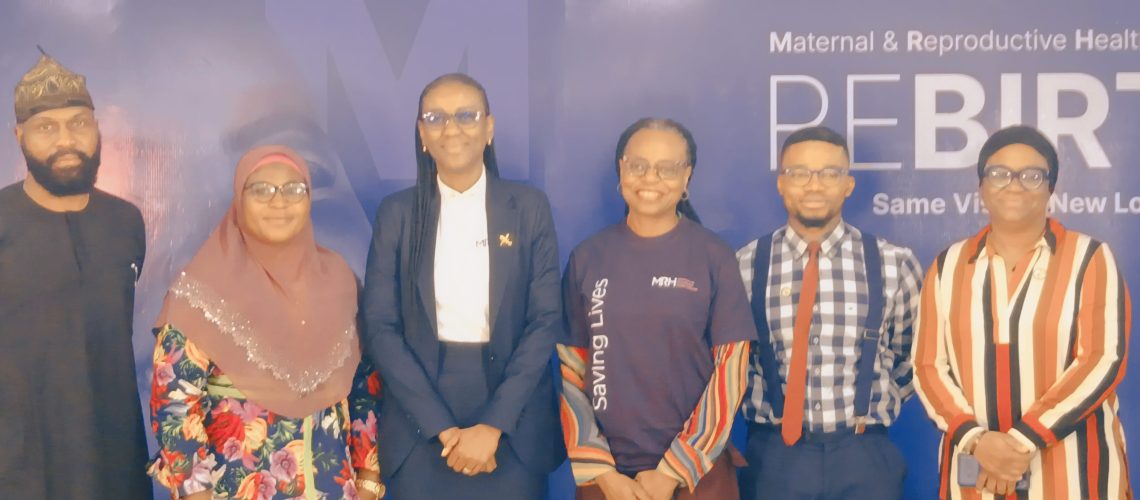
An organisation dedicated to the reproductive health of women; Maternal & Reproductive Health Collective, under the leadership of Bosede Bukola Afolabi, a Professor and Consultant in Obstetrics and Gynecology at the University of Lagos and Lagos State University Teaching Hospital LASUTH, has promised to continue to reduce maternal mortality rate in the country, while unveiling it’s new logo.
The theme of the event, which was held at Amber Residence, Esugbayi Street, GRA, Ikeja, Lagos, on Tuesday February 18, 2025, is “Maternal & Reproductive Health Collective REBIRTH, Same Vision, New Look.”
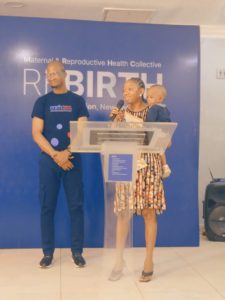
In her speech, Prof. Bosede Afolabi stated that the mission of the organisation is to reduce maternal mortality, adding that they provide care for all categories of women anywhere they are during child birth of reproductive activities.
“We have assisted 7,883 mothers, and we have achieved survival rate of 99.9%. We have trained almost 1,952 people in respective maternity care.
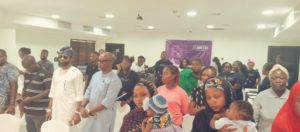
“We have covered the cost or emergency of many women, and we have assisted several communities involving over 3,000 women. Every life saved is a story of hope, resilience and collective action.
Nigeria has the highest mortality rate in the world. But it’s something that collaboratively and collectively we can reduce.
“Life is about change, we cannot remain the same as an organisation, we have to improve and what we are doing today is a symbol of the journey we started together.
“We are launching our website to serve as a hub of education and advocacy. We are more determined to reduce mortality rate, not just in Nigeria or Africa, but all over the world. We thank our partners, our donors, our team and our Board of Directors.
“Your belief in our mission has been the backbone of our mission,” she stated.
The medical personnel revealed that the organisation was formed in 2007, and that it was inspired by the need to reduce maternal mortality in Nigeria and Africa.
In her message at the event, veteran Nollywood actress, Lanre Hassan a.k.a Iya Awero commended Prof. Bosede Bukola Afolabi for doing a good job and for supporting women when they are giving birth.
Explaining the rationale behind the new logo, the CEO of Redwire Marketing, Ms Temitayo Utomi, stated that the organisation has been working since 2007 to improve women’s healthcare.
Utomi stated that the MRH Collective wants to honour the past and shape a new cause for the future.
She stated that the organisation needs a new identity and that things are changing in the world.
“We thought about what the new identity should be. We came up with a new visual and verbal identity, a clearer and stronger message. We also developed a brand that speaks with purpose and impact with a commitment to community driven-change. The new logo shows a woman, which is about changing the lives of women,” she said.
Dr Tope Balogun from the Lagos State Primary Healthcare Board, said in her goodwill message that MRH Collective has been very consistent in helping the women, saying that they appreciate what they have been doing over the years to reduce maternal mortality.
Mohammed Mariam, a beneficiary of the programmes of the organisation, revealed that they did a lot for her through free test, free blood and donation of a lot of gifts.
This was corroborated by another beneficiary, Mrs Temitope Oladele, who said she met the organisation through a neighbour.
“They paid for the antenatal care and scan. They called me hours after I gave birth to my baby. Their help was a big relief,” she said.
At the heart of the Maternal and Reproductive Health Research Collective (MRHRC) stands Prof. Bosede Afolabi, the driving force behind this transformative organisation.
As the founder and chairperson, Prof Afolabi’s dedication to ensuring every woman’s right to life before, during, and after pregnancy is the cornerstone of MRHRC’s mission.
With her profound expertise as a Professor and Consultant in Obstetrics and Gynecology at the University of Lagos and Lagos State University Teaching Hospital, she has become a pillar in the advocacy for equitable healthcare for women, especially in underserved and marginalized communities.
MRHRC delivers impactful programmes that focus on improving access to high-quality, respectful, and equitable healthcare services for women and girls, particularly in low-income communities.
This vision is realized through strategic partnerships with national and local governments, as well as private healthcare providers. The organization’s commitment to preserving the rights of women to receive adequate healthcare, regardless of their socioeconomic background, has made it an influential player in the health sector.
A crucial aspect of MRHRC’s approach is its emphasis on training healthcare workers. By collaborating with various medical, midwifery, nursing, pharmaceutical organizations, and other related bodies, MRHRC works to enhance the quality of medical education.
Through its comprehensive training programmes, MRHRC ensures that healthcare professionals are equipped with the best evidence-based practices and evaluation systems.
The organization integrates this training into both pre-service and in/post-service training programs to create a well-rounded healthcare workforce that is equipped to address the unique needs of women and girls.
In addition to training and education, MRHRC develops advocacy initiatives that focus on strengthening healthcare delivery systems. Through research and policy development, MRHRC aims to create sustainable outcomes that address the gaps in healthcare systems affecting women and girls. By generating and using evidence, MRHRC helps shape policies and practices that ensure better health outcomes for vulnerable populations.
A key aspect of MRHRC’s work is providing health financing support for grassroots interventions.
Through innovative finance mechanisms, MRHRC partners with public, private, and development sector players to ensure that women in low-income communities receive the care they need.
These partnerships enable MRHRC to address financial barriers to healthcare access, ensuring that women receive care, regardless of their economic status.
The vision of MRHRC is to conduct research and implement programs that strengthen the health system, ensuring that women and girls in marginalized communities have access to the highest quality of health services. Through these efforts, MRHRC strives to create lasting improvements in healthcare systems that prioritize the needs of women.
The mission of MRHRC revolves around developing and delivering holistic programs that incorporate the voices of women and their communities. By collaborating with a broad range of stakeholders, MRHRC ensures that its programmes are responsive, equitable, and of the highest quality.
The commitment of the organization to generating rigorous evidence helps refine its programmes, ensuring that they meet the evolving needs of the communities it serves.
Under the leadership of Prof Bosede Afolabi, MRHRC continues to be a catalyst for change in the healthcare sector, working tirelessly to ensure that women and girls, particularly those in low-income and marginalized communities, have access to the care and respect they deserve. Through its innovative approach, MRHRC is not only transforming healthcare delivery but is also empowering women to take control of their health, fostering a future where all women can thrive.





